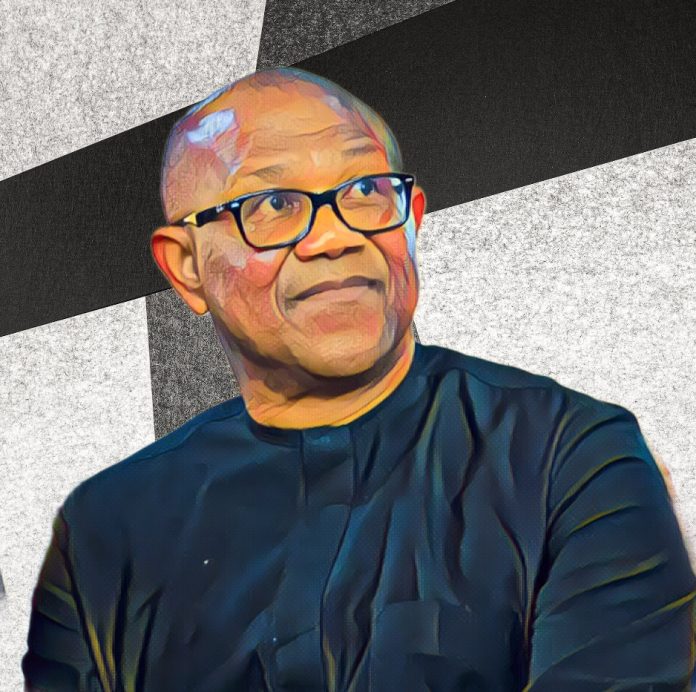In an important speech delivered at the 5th Justice Anthony Aniagolu Memorial Lecture in Enugu, Mr. Peter Obi, the Labour Party’s presidential candidate in the 2023 General Elections, emphasized the critical need for robust institutions and stringent adherence to the rule of law to safeguard Nigeria’s democracy and secure its citizens’ future. Highlighting the judiciary’s role as central to these efforts, Obi expressed concerns over its current state, which he believes poses a severe threat to the democratic process and the nation’s development.
During his speech, Obi argued that the primary challenges to Nigeria’s democracy do not stem from the Independent National Electoral Commission (INEC) as many suggest, but rather from deficiencies within the judiciary system itself. He criticized the judiciary for being “transactional” and susceptible to influence, whereby justice appears to be served based on connections and financial power rather than on merit and fairness. This situation, he noted, deters foreign investment, undermines economic stability, and erodes public trust in the judicial system.
Obi pointed out that the weakened state of the rule of law and the prevalence of insecurity have made Nigeria a difficult environment for both foreign and local investors. The lack of a reliable judicial framework to enforce contracts and resolve disputes, according to Obi, directly impacts the willingness of investors to engage with and invest in the country. He emphasized that without foundational changes to ensure security, strong institutions, and rule of law, calling for foreign investment would be futile.
The presidential candidate recalled his experiences in Anambra, where he once benefited from a more reliable judiciary, to underscore how the judicial landscape in Nigeria has changed. He lamented the current scenario where only a handful of judges are willing to uphold justice without bias or influence. To rectify this, Obi called for a judicial overhaul that increases the number of judges who are committed to safeguarding the rule of law over those susceptible to corrupt practices.
He stressed that the judiciary’s failure to act independently and judiciously has widespread repercussions for societal well-being and democratic integrity. The frequent issuance of conflicting court injunctions, he noted, is a clear indicator of systemic judicial issues that need immediate attention.
Reflecting on the legacy of Justice Anthony Aniagolu, for whom the memorial lecture was named, Obi praised the late Supreme Court justice for his unwavering commitment to justice and the rule of law. He challenged current members of the judiciary to emulate Justice Aniagolu’s exemplary conduct, which he described as integral to the advancement of democracy and justice in Nigeria.
As Nigeria grapples with these pressing issues, Obi’s remarks highlight an urgent need for reform and active participation from all sectors of society to combat the decay within critical institutions. For Nigeria to move forward and truly prosper, it must begin with a concerted effort to rebuild its judicial system as a cornerstone of democracy and protector of citizen rights.
In his compelling address, Peter Obi has not only spotlighted the deficiencies that plague Nigeria’s judiciary but also framed these issues as central to the broader challenges facing the country’s democracy and economic prospects. His call to action for judicial reform and stronger rule of law is a resonant message that underscores the fundamental changes needed to drive Nigeria toward a more stable, democratic, and prosperous future. As the country looks ahead, the response to this call will be a defining factor in its trajectory toward achieving true democratic governance and societal well-being.



